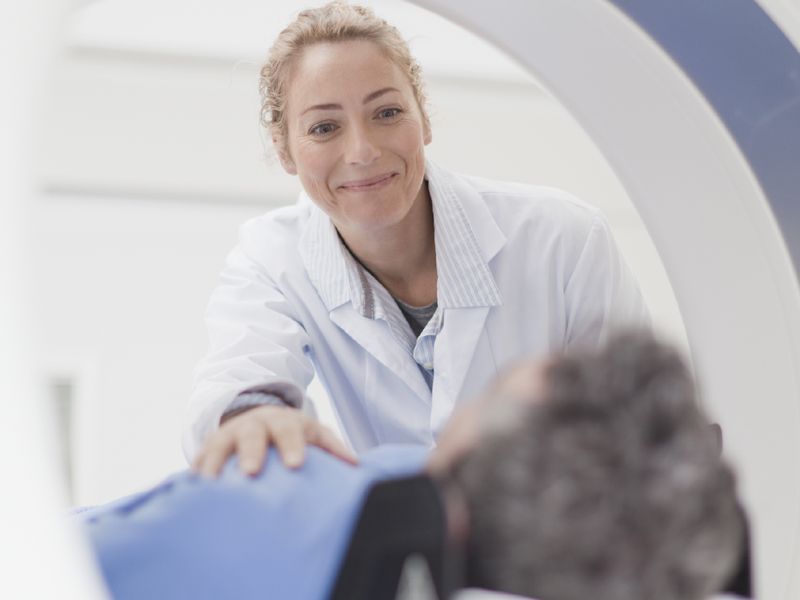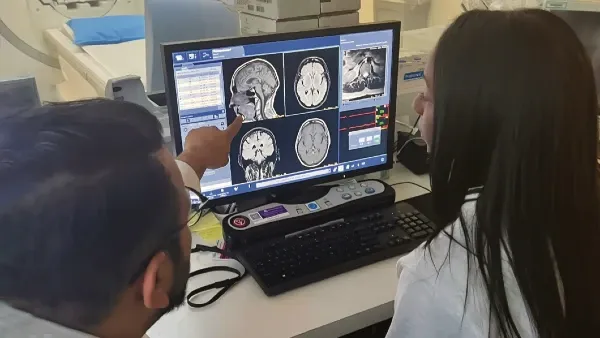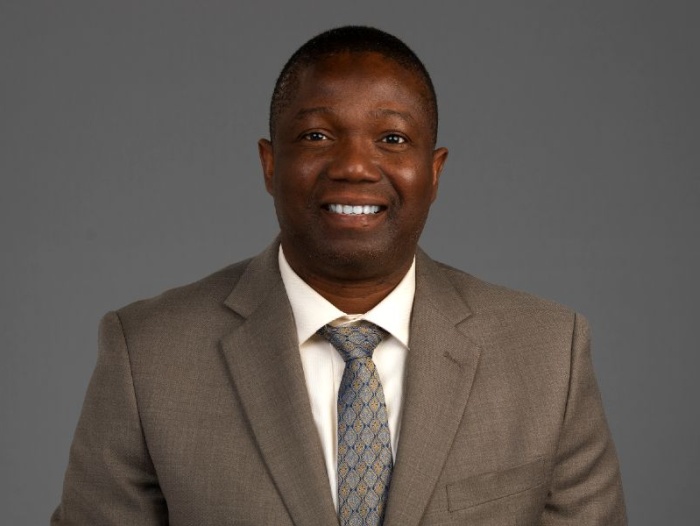Introduction
Our Bachelor of Science (BS) in Imaging Sciences is a unique, hybrid program that prepares you for a career in imaging science.
We provide you with the opportunity to learn about the different medical imaging sciences while learning online, on-campus and through clinical experiences.
This program is customizable. Some students start with previous experience in imaging sciences, and others are entry-level and need preparation for licensure.
Medical imaging technologists perform imaging examinations that aid in the diagnosis, intervention and treatment of diseases and medical conditions.
We are committed to offering the highest quality education. We do this through formal didactic and state-of-the-art clinical experiences essential for preparing advanced-level professionals.
The program seeks to enroll a diverse student body in order to promote its values of diversity and inclusion.
Students complete 1,000 hours of clinical practice to allow them to gain the experience they need to succeed in the medical imaging field.
Rush's approach: Bachelor’s degree in medical imaging

We use a teacher-practitioner model. This means your teachers are experienced practitioners in their fields.
Training provides hands-on experience with cutting-edge technology, preparing students to lead in the field of imaging sciences. Students benefit from a program that combines academic excellence, clinical expertise and personalized mentorship, ensuring they graduate fully prepared for successful careers in medical imaging.
Our program provides flexibility for learners who need to make their own schedules and learn on their own time. It can be tailored to fit your needs, even if you have previous experience in this field.
Our students are independent learners who are often looking for the next step in their career preparation.
You’ll forge important professional connections by completing clinical rotations at health systems and organizations around the Chicago area.
You’ll gain the knowledge, skills, professional competencies and best practices required to perform advanced-level imaging in modalities such as the following:
- Computed tomography (CT)
- Magnetic resonance imaging (MRI)
- Cardiac-interventional (CI) radiography
- Vascular-interventional (VI) radiography
Statistics
- 91% average program completion rate over the past seven years
- 98% average job placement rate
- Graduates complete 1,000 hours of clinical specialty experience, with an average clinical competency performance mean score of 4.4 (5.0 scale)
- Average of 4.8 (out of 5.0 scale) on student satisfaction surveys
- Average of 4.6 (out of 5.0 scale) on employer satisfaction surveys
Rush does not offer a radiography bachelor’s degree but specializes in post-radiography bachelor's programs in CT, MRI and interventional radiology (IR) and cardiac catheterization (cath lab), along with an MRI entry-track program.
Students can specialize in MRI via the direct entry program or advance their radiation technologist (RT) careers in CT, IR or cath lab. MRI does not require prior RT licensure, while CT, IR and cath lab require an RT credential first.
The medical imaging modalities you will learn
The BS in Imaging Sciences provides training in a variety of imaging modalities. These modalities matter to students because careers in CT, MRI and radiography offer high demand and stable jobs in hospitals, outpatient centers and specialized imaging clinics. They also offer competitive salaries and opportunities for advancement in specialized imaging and leadership roles.
Medical imaging professionals represent the third-largest group of health care professionals after physicians and nurses and play a vital role in patient care and diagnosis.
The following are some of the modalities in medical imaging that students can pursue at Rush:
Computed tomography
Magnetic resonance imaging
Radiography
Medical Imaging Bachelor’s Degree length and location
The BS in Imaging Sciences program is customizable. It can be taken on a full- or part-time basis and includes online, on-campus and clinical experiences.
There are online study restrictions for non-Illinois residents and international students.
You will complete 1,000 hours of clinical practice to gain the experience you need to succeed. Our non-exclusive list of affiliates includes the following:
- Advocate Christ Medical Center
- Advocate Illinois Masonic Medical Center
- Advocate Lutheran General Hospital
- Advocate Trinity Hospital
- Circle Imaging - Rush Professional Building
- Loyola University Health Systems
- Lurie Children’s Hospital of Chicago
- Midwest Orthopaedics at Rush
- Northwestern Medicine Lake Forest Hospital
- Rush University Medical Center
- University of Chicago Medical Center
Proctored exams
This online medical imaging program requires course exams to be proctored and encourages the proctoring to be conducted at Rush University.
If you are unable to be at Rush, an external official proctoring site may be approved by the program director.
Any upfront external proctoring charges are the responsibility of the student and will be reimbursed at the end of the term.
External proctoring charges are dependent on the facility that is chosen. Charges can range from $15-$25 per exam seating.
Medical Imaging program tuition
At Rush University, we know your education is a big investment. We want to make sure you have all the information to make the best financial decisions for you and your family.
Tuition for the BS in Imaging Sciences program is $880 per credit.
Scholarship opportunities are available.
Please complete your program application first. This will determine your scholarship options.

“I’ve loved clinicals, and I realized when I started them last May that I had picked the right field for sure.”
– Jada, second-year imaging sciences student
Medical Imaging career opportunities
Graduates can pursue the following careers, among others:
- Cardiac interventional technologist
- Computed tomography technologist
- Magnetic resonance technologist
- Vascular interventional technologist
- Medical imaging educator
- Medical imaging team leader/manager/director
Medical imaging is one of the fastest growing professions in the country.
According to the U.S. Bureau of Labor Statistics, employment of radiologic and MRI technologists is projected to grow 13% from 2016 to 2026.
The need for advanced medical imaging technologists is expected to increase significantly due to the following:
- Increases in the population and aging of the population
- Changes in treatment and technology
- Prevalence of disease states or conditions requiring advanced diagnostic and interventional radiography
According to American Society of Radiologic Technologists, salaries will increase for those who possess an advanced educational degree and the knowledge and skills for advanced practice.
A bachelor’s degree in the field gives you a head start on the track toward management and leadership positions in a clinical setting.
Learn about some of our students, their experiences and why they chose Rush University.
(312) 942-7120
chs_admissions@rush.edu
Learn about upcoming sessions and events in your field of interest.
Sign up to receive more information about this program.






